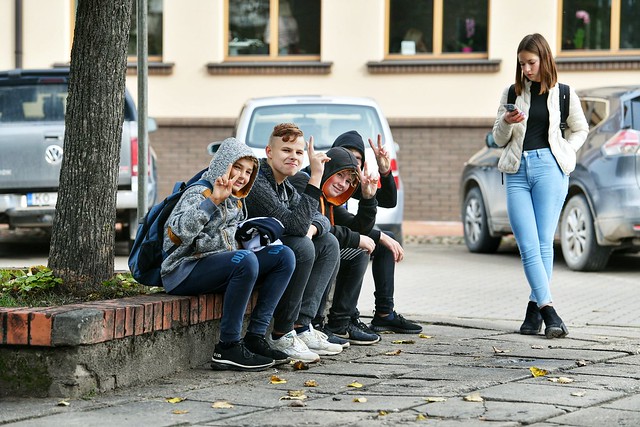One of the most discussed topics was protection of democracy against disinformation in information space and weak media literacy. President of Latvia answered various questions asked by youngsters and stressed: ‘This is a problem we must all be aware of. We must improve general media literacy, i.e. competencies linked to how we use the information space, to be able to counter this problem and avoid being manipulated, discriminate between facts and fake news, think critically and analytically. Digital information space is a platform where anyone can express their views. Unfortunately, it also opens opportunities for outright manipulation. We subconsciously tend to choose information spaces that reinforce our convictions and thus contribute to forming of information bubbles. People often forget that there are other information bubbles and theirs is not the only one out there. That is why, for example, on a personal level we tend to think that what we are reading on Facebook is true, and such views are shared by majority of people. That is a misleading. You can easily be tricked into believing that by, for example, using bots or algorithms. Moreover, by disclosing heaps of personal information in such information space you are feeding these algorithms and making profiling easier for them. Manipulative powers usually target one’s political views, thoughts about various current issues and contentious subjects, etc.’
President and youngsters also discussed key elements of efficient democracy: ‘First, we need democratically active society or people who want to be a part of processes determining future of Latvia and its people. Citizens who are ready to devote their time and probably also their professional career to serving the public. It does not necessarily entail a political career or party membership. Just by being here you have already shown that you care about the future of Bauska, Latvia and its people, the world and, of course, the democracy.’
During the discussion youngsters asked questions about the need to vote and President Levits told them that ‘we all want to be responsible and full-fledged members of society; we want to give back to the people instead of just taking. It is a matter of self-esteem. If you respect yourself, you go and cast your vote’.
President and youngsters also talked about US presidential elections, impact of COVID-19 on the economy and people’s well-being, patenting of ideas, tax policy, regional reform and historical and cultural Latvian lands bill proposed by the President.
President of Latvia Egils Levits concluded the discussion by wishing everyone, including youngsters, to never forget that they are an important part of the society and its future. ‘That means that you are responsible for what is happening around you, in Europe and the world. Your concern will help make your life better and will help you become a person that everyone, including you yourself, enjoys being around.’






